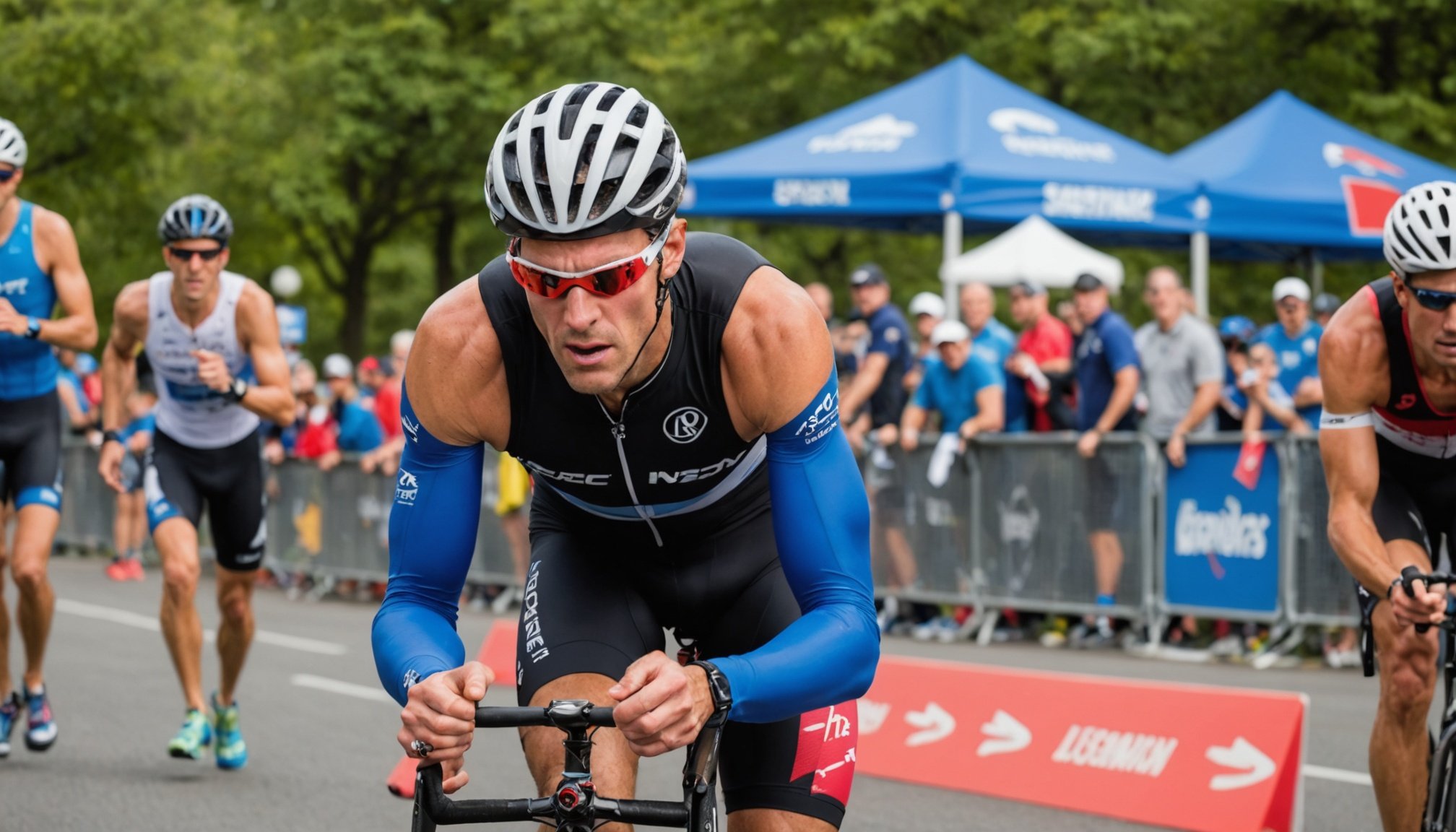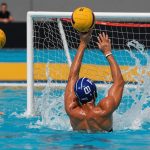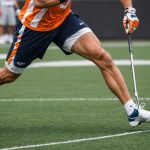Understanding Mid-Race Fatigue
Mid-race fatigue is a common challenge faced by triathletes, affecting performance and race outcomes. Mid-race fatigue occurs due to various physiological and psychological factors. Physically, the energy demands of swimming, cycling, and running lead to depletion of glycogen stores. Glycogen is essential for maintaining energy levels, and when these reserves are low, fatigue sets in. Dehydration and electrolyte imbalances also contribute to fatigue, as they impede muscle function and thermoregulation.
Psychologically, mental stress and nervous tension play significant roles in mid-race fatigue. The pressure to perform, combined with self-doubt, can negatively impact focus and motivation. This psychological strain exacerbates physical fatigue, creating a cycle that hinders overall performance.
In the same genre : Enhance Goalkeeper Reaction Time in Water Polo: Targeted Drills for Maximum Performance
The effects of fatigue on performance are considerable. As fatigue progresses, athletes may experience reduced speed and endurance, impacting their race strategy and finishing times. Additionally, decision-making and coordination suffer, leading to increased risk of errors and possibly even injury.
To tackle mid-race fatigue, understanding its multifaceted nature is crucial. By managing energy reserves, hydration, and mental resilience, triathletes can mitigate the adverse effects of fatigue, enhancing their performance and race outcomes.
Also to read : Essential injury prevention techniques for professional lacrosse players: mastering hamstring health
Mental Preparation Techniques
Preparation of the mind is as vital as physical readiness in sports. Mental preparation can significantly influence performance, enhancing focus and resilience. Let’s delve into specific techniques to hone mental skills and achieve peak results.
Visualization Strategies
Visualization techniques are effective tools for athletes aiming to enhance performance. By mentally simulating a race or event, athletes can increase their familiarity with scenarios, which aids in preparation. Through mental scenarios, athletes anticipate challenges, strategize responses, and visualise success, thus reducing anxiety. These practices allow for enhanced focus during the actual performance, as the mind has already traversed potential obstacles and solutions, improving overall outcomes.
Mindfulness and Focus
To bolster focus and concentration during competitions, athletes often employ mindfulness practices. Staying in the moment is pivotal, as it helps combat fatigue and distractions. Techniques like meditation or breathing exercises can significantly assist in maintaining mental clarity and retaining focus even under pressure. Such exercises are invaluable in helping athletes stay calm, composed, and mentally sharp.
Positive Self-Talk
Adopting positive self-talk is another beneficial strategy for enhancing mental preparedness. Using affirmations and encouraging phrases boosts confidence and fosters a positive mindset. This positivity directly impacts physical performance, as mentally strong athletes are better equipped to handle challenges and maintain stamina during demanding situations.
Practical Exercises for Mental Resilience
Building mental resilience is crucial for athletes, especially in endurance sports. Incorporating structured mental drills into your routine can help strengthen your mind alongside your body. For instance, visualization techniques allow athletes to mentally rehearse their performance, prepare for challenges, and visualize success. This practice aligns with physical training to fortify mental endurance, ensuring athletes remain calm under competitive pressure.
While physical training enhances body strength, it is equally important to prepare mentally to face race-day challenges. Unexpected fatigue is a common obstacle during races, and having strong coping strategies can make a difference. Techniques such as mindfulness and controlled breathing help maintain focus and composure, enabling athletes to push through tough moments.
Endurance training’s mental component involves embracing discomfort and overcoming it with resilience. By repeatedly facing and managing minor adversities during practice, athletes build a robust mental framework. This endurance training fosters a sense of self-efficacy and prepares athletes to tackle larger challenges with confidence.
Adopting a synergy between physical and mental exercises creates a holistic training approach, empowering athletes to excel. Enhancing mental resilience and coping skills equips athletes to address unexpected hurdles efficiently, making them better competitors in their field.
Real-life Examples and Anecdotes
In the world of triathlon, hearing stories from triathletes themselves can be immensely inspiring and informative. Professional triathletes often share valuable insights on how they manage mid-race fatigue, which is a common challenge. Through various interviews, athletes reveal their best practices for conserving energy and staying mentally resilient.
For instance, experienced competitors discuss individual fatigue management techniques like pacing strategies and breathing exercises. By implementing these, they show how energy can be effectively balanced throughout the event’s rigorous demands. Many have shared stories of overcoming intense tiredness by focusing on an internal dialogue, reminding themselves of their past successes to push through difficult segments of the race.
Additionally, some athletes provide compelling race experiences, shedding light on both the mental and physical hurdles they encounter. These anecdotes include practical lessons learned, such as the importance of nutrition planning and adapting mental techniques to face unexpected challenges.
Case studies further illuminate how successful mental techniques have changed outcomes for triathletes. This includes using visualization methods for course navigation and breaking down the race into smaller, mentally manageable sections. By focusing on these anecdotes, one gathers the importance of mental strength and strategic thinking in achieving race success.
Supporting Research and Studies
Research studies in endurance sports emphasize the crucial role of mental preparation techniques. It is well-documented that elite athletes employ a range of mental techniques to enhance their performance. A significant body of research supports the effectiveness of these practices.
To quantify the impact, studies have analyzed performance outcomes, revealing that mental techniques can statistically improve results. Techniques such as visualization, goal setting, and self-talk have shown notable effectiveness. For instance, a study in the Journal of Sports Psychology outlines how athletes using visualization saw a measurable improvement in their results.
In terms of statistical significance, research consistently demonstrates a positive correlation between applied mental techniques and enhanced performance. A critical finding from the National Center for Sports Psychology observed that athletes employing these techniques reduce anxiety and increase focus, ultimately leading to better performance outcomes.
Experts in sports psychology advocate these strategies, indicating their importance in comprehensive athletic training. Leading sports psychologists like Dr. Jane Williams emphasize that mental techniques should be integrated as an essential pillar of training, alongside physical preparation. In summary, robust evidence from multiple research studies underscores the irreplaceable role of mental techniques in sports achievement.
Expert Opinions and Interviews
Understanding the mental side of sports is incredibly significant, as highlighted by trusted expert insights. Sports psychologists, for example, offer invaluable guidance on maintaining a mental edge. A shared strategy among these professionals is the use of visualization techniques. They assert that by mentally rehearsing successful performance, athletes enhance their focus and confidence. Another critical point is addressing common mental barriers such as anxiety. Experts suggest incorporating mindfulness practices to help athletes stay present and manage stress effectively.
Insights from Sports Psychologists
One vital strategy recommended by sports psychologists involves goal-setting, aiding athletes in maintaining motivation and focus. By breaking objectives into smaller, manageable goals, athletes can steadily progress without feeling overwhelmed. Furthermore, engaging in mental coaching sessions enables athletes to identify personal triggers leading to mental blocks and devise personalized strategies to combat them.
Coaches’ Perspectives
Coaches emphasize the significance of integrating mental training into daily routines. They advocate for consistent mental exercises tailored to individual athlete needs, emphasizing how crucial it is for their players to balance physical training with mental preparation. From a coaching perspective, implementing mental training in protocols helps manage fatigue, enabling athletes to operate effectively under pressure. Real-life coaching experiences emphasize how developing mental resilience can significantly improve overall performance, ensuring athletes remain competitive.











